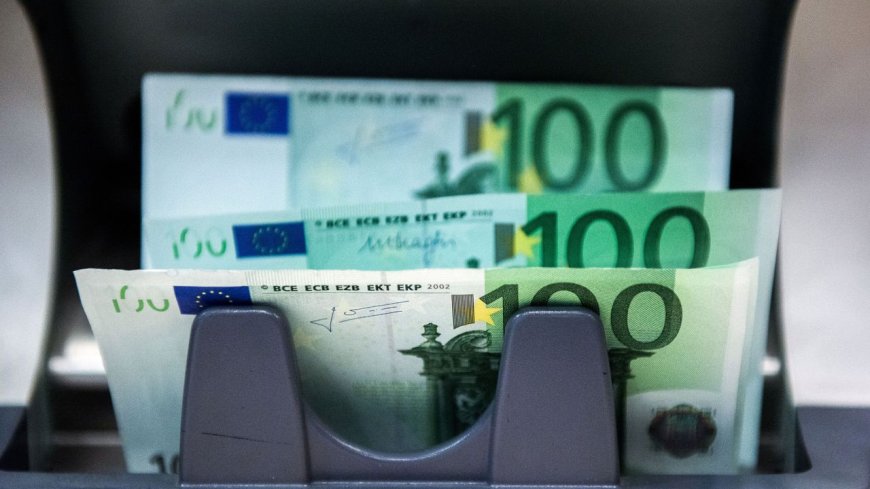South Africa Contemplates Historic Shift to Universal Basic Income
South Africa is on the brink of a significant political transformation following the African National Congress (ANC)'s loss of its majority in the general election on May 29. As the ANC and rival parties negotiate a coalition government, one unifying commitment is emerging: increased income support for adults, including the extension of monthly Covid payments to the poorest households.

However, the ANC is taking this a step further. Just before the election, the party announced plans to transform the existing Covid grant into a universal basic income (UBI) within two years if it remains in power. This policy would make South Africa the first nation to implement a UBI for all individuals aged 18 to 59, regardless of employment status.
Currently, South Africa's Social Relief of Distress (SRD) grant is available to individuals whose monthly income falls below the food poverty line. The ANC aims to expand this eligibility to all adults by gradually increasing the means-test threshold, which has not kept pace with inflation since 2021.
The concept of a basic income has long been discussed as a solution to inequality. High-profile advocates, including Elon Musk and Martin Luther King Jr., have championed it as a response to technological unemployment and widespread poverty. The Covid-19 pandemic, which saw unprecedented government interventions like emergency grants, has revived serious consideration of UBI policies.
"When you put money into the hands of the poorest households, it lifts the whole economy," says Kelle Howson, a senior researcher from the Johannesburg-based Institute for Economic Justice (IEJ). Research from Kenya’s UBI study by GiveDirectly supports this, showing recipients improved their diet, saved for large purchases, and started businesses.
Despite these benefits, UBI has largely remained a theoretical policy until recently. Covid-19 emergency measures in countries like Spain, the US, and the UK demonstrated the feasibility of large-scale income support. However, many nations have since reverted to austerity to address pandemic-induced debt, making sustained support challenging.
South Africa, maintaining its Covid grants amidst broader austerity, saw violent unrest when these grants were briefly halted in 2021. This underscores the critical role these payments play in social stability. However, the SRD grant, at R370 (approximately £16), is only half the amount needed to meet the food poverty line, and many eligible recipients are excluded by digital and automated means-testing processes.
Elizabeth Raiters, an unemployed South African, regularly experiences these exclusions. She works with the #PayTheGrants campaign, which, alongside the IEJ, filed a lawsuit against the government in 2023 over the restrictive grant regulations.
Trials of UBI in other regions have shown promising results. In Wales, a basic income for young people leaving care has provided financial stability and positive life changes. Similarly, an Irish scheme for artists allowed participants to recover from illness, pursue ambitious projects, and improve their quality of life.
The IEJ argues that funding a basic income in South Africa is feasible through mechanisms like a social security tax, a wealth tax, or increased VAT revenue from higher consumption. “We know the resources do exist in South Africa to sustainably finance a grant in a way that increases economic growth,” Howson asserts. “It’s not an admission of defeat in the scale of poverty that other strategies haven’t worked. It’s a new developmental paradigm.”
As South Africa navigates its political landscape, the push for a universal basic income represents a bold strategy to address deep-seated economic inequalities and foster long-term social and economic stability.
Tags:
- African Union
- crisis
- Sudan
- Africa
- Algeria
- Angola
- Benin
- Botswana
- Burkina Faso
- Burundi
- Cameroon
- Cape Verde
- Central African Republic
- Chad
- Comoros
- Democratic Republic of the Congo
- Djibouti
- Egypt
- Equatorial Guinea
- Eritrea
- Eswatini
- Ethiopia
- Gabon
- Gambia
- Ghana
- Guinea
- Guinea-Bissau
- Ivory Coast
- Kenya
- Lesotho
- Liberia
- Libya
- Madagascar
- Malawi
- Mali
- Mauritania
- Mauritius
- Morocco
- Mozambique
- Namibia
- Niger
- Nigeria
- Republic of the Congo
- Rwanda
- Sao Tome and Principe
- Senegal
- Seychelles
- Sierra Leone
- Somalia
- South Africa
- South Sudan
- Sudan
- Tanzania
- Togo
- Tunisia
- Uganda
- Zambia
- Zimbabwe.













































